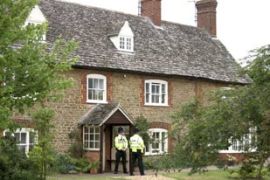UK experts call for Kelly inquiry
Legal and medical figures call for new inquest into death of WMD inspector in 2003.

‘Conclusion unsafe’
Charles Falconer, the government’s chief law officer at the time of Kelly’s death, suspended an inquest into the incident before an inquiry began, and the inquest was never resumed.
The subsequent inquiry, led by Lord Hutton, concluded “the principal cause of death was bleeding from incised wounds to his left wrist, which Dr Kelly had inflicted on himself with the knife found beside his body”.
But the letter’s signatories argue that the conclusion was unsafe.
They say that a severed ulnar artery, the wound found to Kelly’s wrist, was unlikely to be life-threatening unless an individual suffered from problems with blood clotting.
“Insufficient blood would have been lost to threaten life,” they wrote.
“Absent a quantitative assessment of the blood lost and of the blood remaining in the great vessels, the conclusion that death occurred as a consequence of haemorrhage is unsafe.”
False claim
Kelly was the most experienced British expert involved in UN inspections in Iraq intended to prevent Saddam Hussein, the Iraqi president, from acquiring WMDs.
Ahead of the March 2003 invasion, the UK government published intelligence about Saddam’s purported WMDs in a bid to strengthen its case for going to war, including a claim that they could be deployed within 45 minutes.
Suspicion fell on Kelly after Andrew Gilligan, the BBC’s then defence correspondent, said a British official had told him that Downing Street had altered the intelligence dossier to make it “sexier”.
In the wake of the US-led invasion, no such weapons were found.